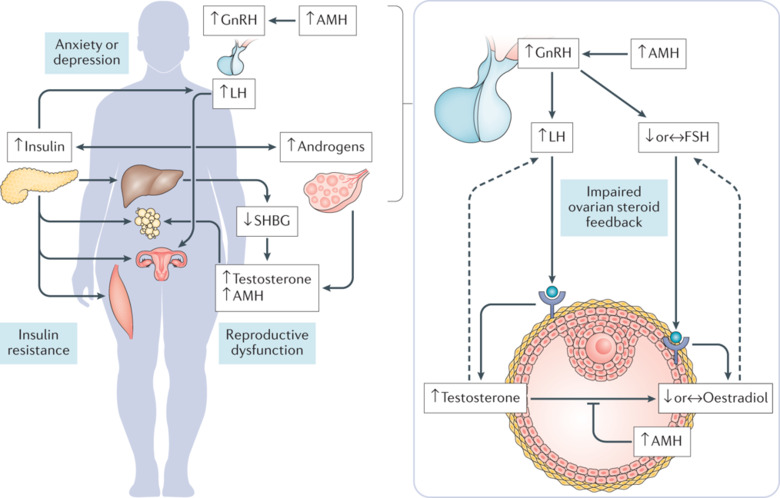A recent study published in the Journal of Clinical Endocrinology & Metabolism has revealed a significant association between Polycystic Ovary Syndrome (PCOS) and an increased likelihood of developing eating disorders. The research, led by Dr. Laura G. Cooney from the University of Wisconsin in Madison, highlights the need for tailored care for women with PCOS, considering the potential psychological impacts related to eating behaviors.
The Study and Its Findings
The study involved a systematic review and meta-analysis of data from 20 articles, encompassing a total of 28,922 women diagnosed with PCOS and 258,619 women without the condition. The researchers aimed to investigate the prevalence of eating disorders among women with and without PCOS.
The findings revealed that women with PCOS are 1.53 times more likely to develop any eating disorder compared to women without PCOS. When PCOS was diagnosed using the Rotterdam criteria, the odds increased even further, with women being 2.88 times more likely to develop an eating disorder.
Specific Eating Disorders and PCOS
The study identified a heightened risk of specific eating disorders among women with PCOS, including bulimia nervosa and binge eating disorder. However, the researchers did not find a significant association between PCOS and anorexia nervosa.
Moreover, women with PCOS exhibited higher mean disordered eating scores, regardless of whether they had a normal or higher-weight body mass index (BMI). This finding underscores the complex relationship between PCOS, body image, and eating behaviors.
Implications for Care
The authors of the study emphasize the importance of individualized care for women with PCOS, particularly in the context of eating disorders. They caution against approaches that may exacerbate weight stigma or focus solely on weight management without considering the broader psychological and emotional factors at play.
“Care for women with PCOS should be individualized and contextualized with the knowledge of the negative impact of weight stigma or weight management in the setting of eating disorders,” the authors write.
Conclusion
This study sheds light on the often-overlooked connection between PCOS and eating disorders, highlighting the need for a more nuanced approach to managing the condition. As healthcare providers continue to navigate the complexities of PCOS, integrating mental health support into treatment plans may be crucial in addressing the full spectrum of challenges faced by women with this condition.
For more detailed information, the study can be accessed through the Journal of Clinical Endocrinology & Metabolism: DOI: 10.1210/clinem/dgae462.











